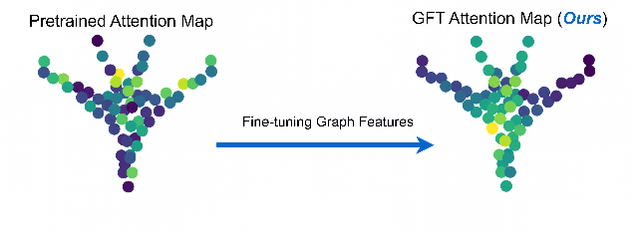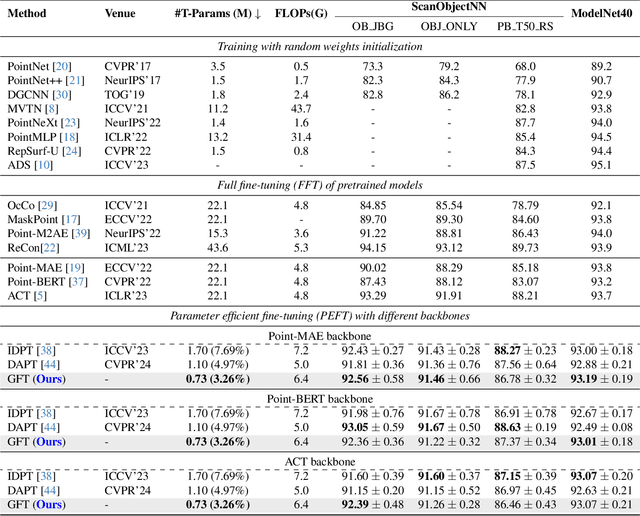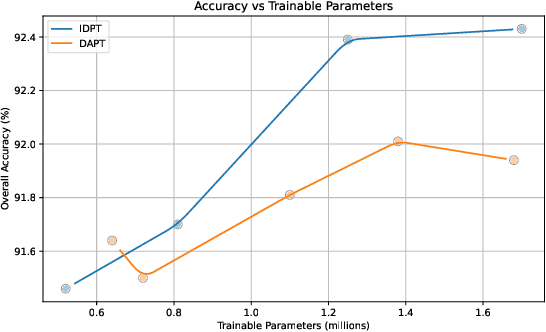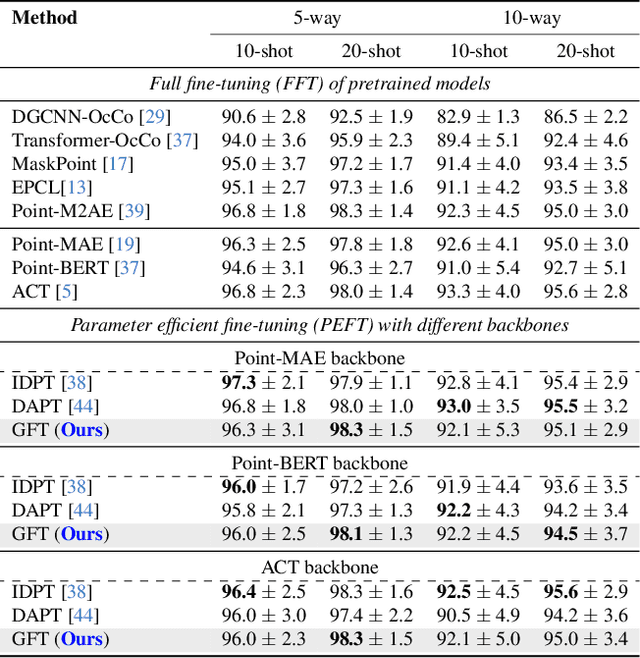Raj Sunderraman
GFT: Graph Feature Tuning for Efficient Point Cloud Analysis
Nov 13, 2025



Abstract:Parameter-efficient fine-tuning (PEFT) significantly reduces computational and memory costs by updating only a small subset of the model's parameters, enabling faster adaptation to new tasks with minimal loss in performance. Previous studies have introduced PEFTs tailored for point cloud data, as general approaches are suboptimal. To further reduce the number of trainable parameters, we propose a point-cloud-specific PEFT, termed Graph Features Tuning (GFT), which learns a dynamic graph from initial tokenized inputs of the transformer using a lightweight graph convolution network and passes these graph features to deeper layers via skip connections and efficient cross-attention modules. Extensive experiments on object classification and segmentation tasks show that GFT operates in the same domain, rivalling existing methods, while reducing the trainable parameters. Code is at https://github.com/manishdhakal/GFT.
Accounting for Temporal Variability in Functional Magnetic Resonance Imaging Improves Prediction of Intelligence
Nov 11, 2022Abstract:Neuroimaging-based prediction methods for intelligence and cognitive abilities have seen a rapid development, while prediction based on functional connectivity (FC) has shown great promise. The overwhelming majority of literature has focused on static FC with extremely limited results available on dynamic FC or region level fMRI time series. Unlike static FC, the latter features include the temporal variability in the fMRI data. In this project, we propose a novel bi-LSTM approach that incorporates an $L_0$ regularization for feature selection. The proposed pipeline is applied to prediction based on region level fMRI time series as well as dynamic FC and implemented via an efficient algorithm. We undertake a detailed comparison of prediction performance for different intelligence measures based on fMRI features acquired from the Adolescent Brain Cognitive Development (ABCD) study. Our analysis illustrates that static FC consistently has inferior performance compared to region level fMRI time series or dynamic FC for unimodal rest and task fMRI experiments, as well as in almost all cases for multi-task analysis. The proposed pipeline based on region level time-series identifies several important brain regions that drive fluctuations in intelligence measures. Strong test-retest reliability of the selected features is reported, pointing to reproducible findings. Given the large sample size from ABCD study, our results provide conclusive evidence that superior intelligence prediction can be achieved by considering temporal variations in the fMRI data, either at the region level, or based on dynamic FC, which is one of the first such findings in literature. These results are particularly noteworthy, given the low dimensionality of the region level time series, easier interpretability, and extremely quick computation times, compared to network-based analysis.
 Add to Chrome
Add to Chrome Add to Firefox
Add to Firefox Add to Edge
Add to Edge